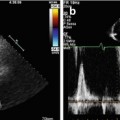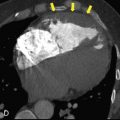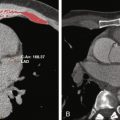
Becoming a doctor doesn’t end with graduation—it begins with the long, demanding years of residency. This stage tests every skill, from medical expertise to emotional endurance. Residents work exhausting hours, adapt to high-pressure environments, and balance their commitment to patients with their personal well-being. The transition from student to practicing doctor can be both exciting and overwhelming.
This article will discuss the top challenges medical residents face and guide them on how to overcome these hurdles with practical, actionable strategies that promote success, balance, and resilience in one of the most demanding career paths.
Long Working Hours and Burnout
One of the biggest challenges residents face is managing extremely long work hours. Between overnight shifts, back-to-back patient rounds, and constant emergencies, rest becomes rare. The fatigue that builds up over time often leads to burnout. These demanding schedules can also make it difficult to maintain personal health, relationships, or hobbies outside work.
To overcome this, residents need to take charge of their limited downtime. Even short periods of rest can help the body recover. Prioritizing sleep, whenever possible, is vital. Mindfulness techniques, such as deep breathing or meditation, can also help manage stress and maintain clarity during hectic shifts.
Financial Challenges
Financial pressure is another major concern for many medical residents. After years of medical school, most begin residency with significant student loan debt while earning modest salaries. Relocation costs, exam fees, and living expenses add to the strain. Managing finances on top of clinical responsibilities can lead to constant stress.
The key is to take a practical approach early. Setting up a clear budget helps track expenses and identify areas where costs can be reduced. Residents should also look into available financial support options. In some cases, a medical residency loan can provide temporary relief, especially for urgent needs like housing deposits or licensing exams. However, it’s important to borrow responsibly and keep long-term repayment plans in mind.
Emotional Stress and Mental Health Challenges
Residency is emotionally intense. Dealing with patients in critical conditions, witnessing loss, and facing constant pressure to perform can take a toll on mental health. Many residents experience anxiety, depression, or feelings of inadequacy as they try to meet expectations from mentors, peers, and themselves. The emotional burden is often made worse by the lack of time to process difficult experiences.
To cope with these challenges, residents should talk openly with mentors, trusted colleagues, or mental health professionals who can help manage overwhelming emotions. Many residency programs now offer confidential counseling and wellness resources—taking advantage of these can make a real difference. Building a support network, even with a few close peers, helps residents feel less isolated and more understood.
Lack of Work-Life Balance
Work-life balance can feel nearly impossible during residency. Long hours, unpredictable schedules, and constant studying often leave little time for family, friends, or self-care. Over time, this imbalance can lead to emotional exhaustion and frustration, making it hard to stay motivated.
Residents should remember that personal time is not a luxury—it’s a necessity. Setting boundaries, even small ones, helps maintain control over one’s life. Scheduling time for short breaks, phone calls with loved ones, or even a quiet meal can make a big difference. These moments allow the mind to reset and help sustain energy and enthusiasm for the work ahead.
Adapting to Clinical Responsibility
Transitioning from being a student to taking direct responsibility for patient care is a big step. Residents are suddenly expected to make clinical decisions, manage emergencies, and coordinate with healthcare teams, often under intense supervision and time pressure. This shift can be intimidating, especially during the first few months.
The best way to adapt is by embracing a learning mindset. No resident is expected to know everything, and mistakes, when handled constructively, are opportunities for growth. Asking questions, observing senior physicians, and actively seeking feedback can accelerate learning. Over time, confidence develops naturally through experience. Accepting that medicine is a constant learning process helps reduce the fear of failure and encourages professional growth.
Managing Time and Priorities
Time management becomes one of the hardest skills to master during residency. Between handling patient rounds, completing paperwork, studying for board exams, and managing personal responsibilities, it’s easy to feel constantly behind. Without structure, small delays can quickly turn into frustrating backlogs.
The solution lies in learning to prioritize. Residents can benefit from using simple planning tools such as daily checklists, digital calendars, or mobile scheduling apps to stay organized. Tackling the most urgent and impactful tasks first helps maintain focus. It’s also important to accept that not everything can be done perfectly all the time. Learning to delegate smaller tasks, when appropriate, can ease the workload.
Over time, effective time management helps residents feel more in control and less reactive, allowing them to handle demanding schedules with greater confidence.
Dealing with Difficult Patients and Families
Interacting with patients and families is a central part of residency, but it can also be one of the most emotionally draining aspects. Residents often face situations where patients are anxious, frustrated, or non-compliant. Family members may be fearful or even confrontational, especially when outcomes are uncertain. Handling these moments requires patience, empathy, and strong communication skills.
The best approach is to listen first. When patients and families feel heard, they are more open to understanding medical explanations and treatment options. Maintaining a calm tone and explaining information clearly helps reduce tension.
Residents who master the art of compassionate communication not only ease patient relationships but also strengthen their own emotional resilience.
Navigating Hierarchical Work Environments
Residency programs operate within clear hierarchies—attending physicians, senior residents, and administrative staff each have defined roles. New residents might feel hesitant to ask questions or share concerns. However, this should not be the case.
The key is to find balance. Residents should respect authority while also asserting themselves when necessary. Confidence grows when communication is clear and courteous. Observing how senior doctors lead, handle stress, and interact with patients can offer valuable lessons in professionalism. It’s also important to recognize that teamwork is central to medicine. Respectful collaboration, regardless of hierarchy, builds trust across the team and improves patient outcomes.
Residency is one of the toughest yet most transformative phases in a doctor’s career. The long hours, emotional strain, and heavy responsibilities shape residents into skilled professionals ready for the realities of medicine.
The lessons learned in handling pressure, communicating with empathy, and managing time effectively go far beyond the hospital walls. They prepare residents for the lifelong responsibility of healing others with skill and compassion.
Stay updated, free articles. Join our Telegram channel

Full access? Get Clinical Tree








